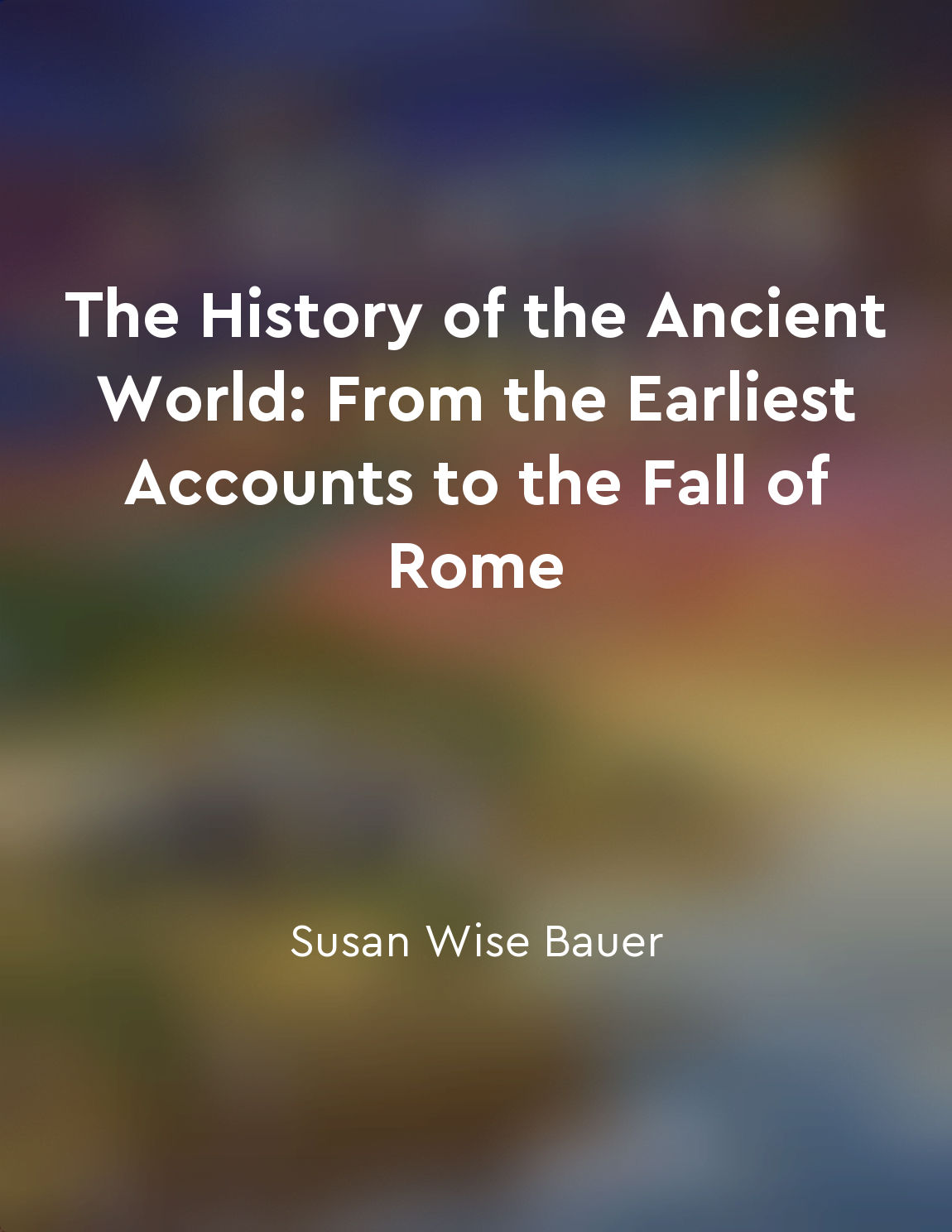Julius Caesar's assassination sparked a series of civil wars from "summary" of History of Julius Caesar by Napoleon III (Emperor of the French)
The assassination of Julius Caesar in the year 44 BC was a turning point in the history of Rome. It was a brazen act committed by a group of senators who feared the growing power of Caesar. The conspirators believed that by eliminating Caesar, they would be restoring the Republic to its former glory. However, instead of restoring peace and stability, the assassination set off a chain of events that plunged Rome into a series of civil wars. The death of Julius Caesar left a power vacuum in Rome, with various factions vying for control. Caesar's supporters, led by Mark Antony and Octavian, sought to avenge his death and maintain their hold on power. On the other hand, the conspirators, including Brutus and Cassius, sought to establish their own rule and prevent Caesar's supporters from seizing power. The power struggle between these factions quickly escalated into open conflict, with battles being fought across Italy and the Roman provinces. The civil wars that followed were marked by intense fighting, political intrigue, and betrayal. The Roman world was plunged into chaos as armies clashed and cities were besieged.- It was Octavian, later known as Augustus, who emerged victorious and established the Roman Empire. The death of Julius Caesar had set off a chain of events that would lead to the end of the Roman Republic and the rise of one of the greatest empires in history.
Similar Posts
Hamlet's evolution from contemplation to action
Hamlet's evolution from contemplation to action is a central theme in Shakespeare's play. At the beginning of the play, Hamlet ...

Examine the spread of Christianity across the Roman Empire
The early years of Christianity were marked by persecution and struggle. The Roman Empire, with its pantheon of gods and emphas...
Octavian's military victories secured his place as Rome's leader
Octavian's rise to power was not easily achieved. It was his military victories that played a crucial role in securing his posi...
Octavian's rule brought stability to Rome after years of turmoil
Octavian, also known as Augustus, rose to power after the assassination of Julius Caesar and the ensuing power struggles that f...

Analyze the impact of trade and commerce on cultural exchange
Trade and commerce played a pivotal role in shaping cultural exchange during ancient times. As goods were exchanged between dif...
The division of the empire led to internal strife
The division of the empire into two separate entities, the Eastern and Western Roman Empires, inevitably led to internal strife...
Roman Empire's vulnerability to disease
The Roman Empire's vulnerability to disease was a critical factor in shaping its fate. The interconnected world of the Roman Em...

